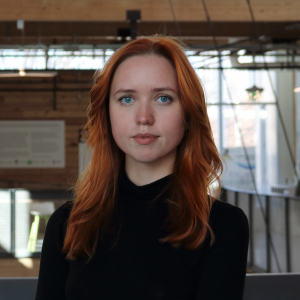What’s your elevator pitch?
I’m looking at my research as a practical approach to ocean sustainability. In order to do that, I have to first lay the groundwork. I will be working with mollusks, so shellfish, oysters, abalone, and conch. Specifically, my research will involve some very simple steps: getting the cells to grow, optimizing the growth conditions, looking at gene expression and cell development in these cells, as well as stem cell marker expression in these cells. Some of this work is very fundamental just because it’s a new area, but I’m looking at it as our oceans being threatened; I think this is a good approach to ocean sustainability and food security, even.
Usually when people think about ocean sustainability in terms of cellular agriculture, the first thing they think of is fish. Why did you decide to do mollusks?
Let me set the backdrop a little bit: I’m a Marine Biologist from The Bahamas, and we have a mollusk there called conch. It’s a cultural icon. In 2009, a scientific report was released predicting conch can become commercially extinct in 10 years if we don’t further protect the fishery.
That’s terrible! Have other farming models worked better?
We’ve tried things like a conch farm, but it wasn’t the best financial business model because it’s very expensive and it takes conch five years to mature. Our oceans are imbalanced – they’re polluted, they’re over harvested, and cellular agriculture to me is just another conservation tool. So that’s what led me to mollusks, really the whole emphasis behind conch and the fact that conch might not be here in ten years in The Bahamas.
I remember eating conch fritters on vacation as a kid, they’re so good.
There you go! There was a survey that asked Bahamians, what is one thing if you had to identify as being Bahamian, what would it be? And people said conch! I can’t imagine one day going to restaurants and asking for conch and being told that there is no conch. And we started to see that already: fishermen have to go further out because the species near shore are depleted, habitats are being destroyed. I think we need to approach conservation from a different angle, and this is why I love this new emerging field of cellular agriculture.
What’s your background?
My background is in marine biology, and I have twenty years of experience working in the conservation field here in The Bahamas and the wider Carribean. I’ve worked on all sides of the conservation spectrum, from policy to academia, teaching at the university level, research, advocacy and nonprofit leadership, so it’s natural for me to look at cellular agriculture as another tool in the toolbox for conservation. That’s how I’m approaching it, and I thought with this new technology, these new methods, this industry is growing so fast, let me look at cellular agriculture as a way to help meet the demand for protein while protecting our oceans.
How did you end up finding out about cellular agriculture?
I actually saw a National Geographic article, I think it was about Mark Post and how he grew a patty in a dish. It was a buzz line and it got my attention. I thought, “Well, if this can be done this way I’m sure we could do it for fish.” And then I stumbled on a video of Michael Selden, the CEO of Finless Foods, where he’s talking about using this technique to grow fish cells.
So that was your inspiration?
I actually reached out to Michael on Facebook and he answered me. I said “I have this crazy idea,” and he told me “I don’t think this is crazy after all!” He gave me advice on who the scientists in the field were and he actually directed me to New Harvest. He told me they have funding opportunities for research and the rest is history: I applied and I got accepted as a fellow, and I also applied to the Lyford Cay Foundation here in The Bahamas and I got funding from them as well.
What is the Lyford Cay Foundation?
It’s a foundation that offers scholarships in different areas; I got the Fiona Albek Award. Lyford Cay Foundation’s vision is, “every Bahamian is empowered to reach his or her full potential.” I received a $100,000 grant from them to support my research at the University of Auckland – I’m actually a student there, but COVID came right when I was supposed to go and I’m stuck until borders reopen in New Zealand.
Where do you see cell ag going and how do you see your research contributing to that?
I think we are a few years away from seeing products on tables that consumers can purchase out of the store, but I do see the ground work being set. I do think we should continue to work hard at it to get it to that place because of the projections of population growth over the next few years; we have to find innovative, safe, healthy ways to feed the world’s growing population
Do you think cell ag is the answer?
I think cellular agriculture is not the end all be all, but it is a great tool to have moving forward. I hope to see my research leading to where you can get oysters or abalone or conch as a cell ag product, but simply growing these cells in culture allows for so many other biotechnological and medical applications. It is a budding and exciting field to be a part of. Taking a multidisciplinary approach can provide fresh insight. Using cellular agriculture as a conservation tool and to promote food security, I believe is a new frontier in science.



